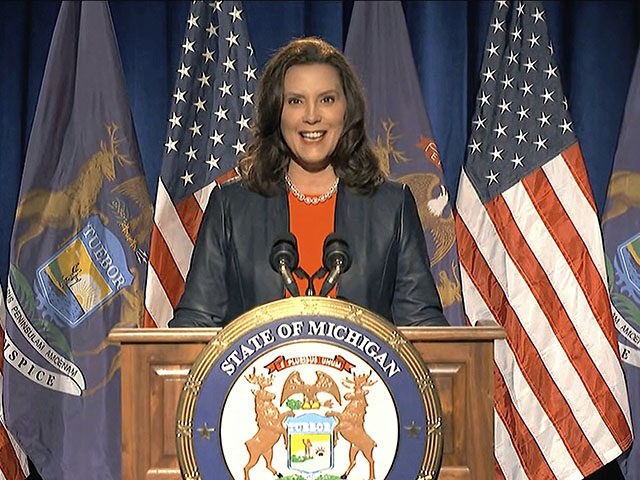On the one hand, the big picture themes of what Governor Gretchen Whitmer will discuss in her third State of the State address are obvious: the coronavirus pandemic and the ensuing economic and education crises. On the other hand, the specifics of what Ms. Whitmer will say are unknown with no major releases – at least as of dinnertime Tuesday – about proposals.
The administration is not even publicly saying where Ms. Whitmer will be when she delivers the speech. They have only said she will not be in the usual spot for delivering the speech, at the rostrum in the House Chamber before a joint session of the House and Senate, packed with guests, department directors and the judiciary. The dangers of a large indoor gathering like the usual State of the State scenario make that impossible during the pandemic.
Ms. Whitmer has rolled out some proposals and actions this month that one would expect her to tout in the speech:
- Distribution of coronavirus vaccines;
- A $5.6 billion supplemental to spend the federal aid Congress passed and former President Donald Trump signed to address COVID-19;
- A broader restart to in-person K-12 education;
- A restart to dine-in service at restaurants and bars on February 1;
- The permanent extension of unemployment benefits to 26 weeks (Ms. Whitmer’s veto of a $220 million transfer from the General Fund to the Unemployment Insurance Trust Fund had the effect of vetoing the extension of 26 weeks of benefits through March from the usual 20 weeks);
- Measures to combat rising prescription drug prices.
Ms. Whitmer will deliver the speech during a time of transition. Her most notable foil, Mr. Trump, is no longer president, replaced by President Joe Biden, a close Whitmer ally. The gubernatorial election cycle has begun, and while no Republican has declared their candidacy yet, that is probably just a matter of months away.
Usually, a governor will take the opportunity of giving a speech before the Legislature to offer thanks to some and criticism to others. In this case, Ms. Whitmer is not bound by the constraints of giving the speech in front of lawmakers, and it will be interesting to see how she tweaks the speech.
What little has been told to others of the speech is that it will be relatively short. With no audience to applaud and stretch out the time needed to deliver the speech, it would not be a surprise if the speech lands at 30 minutes or so.
The reaction to the speech also will be much differently. Usually, legislators and department directors crowd into the House Appropriations Track Room to take questions from reporters. That’s not happening this year.
Josh Pugh of the Michigan AFL-CIO said he anticipated the governor would emphasize her COVID recovery plan and the critical need to pump the federal money sent to the state into vaccine distribution. He also said he expected an emphasis on making sure those affected by the pandemic get the help they need and that the unemployed and underemployed get training services.
As far as what’s at stake for Ms. Whitmer, Mr. Pugh said the overriding themes of her governorship – that she cares about families and is working hard to help the state pull through the pandemic and recover from it – will again be a subtext.
“I think that her brand and her message for the next two years are already defined in the minds of voters and we’re just going to continue to hear her zero on that,” he said.
Andrea Bitely of the Truscott Rossman public relations firm said what will be key in the speech is what the governor says about planning to vaccinate all residents of the state. The state has made eligible anyone 65 and older as well as teachers, health care workers and select others. Once there are enough vaccines to start on those under 65, the state has not detailed eligibility criteria.
“How the state of Michigan is going to make sure that those of us who are healthy, in our 30s, don’t fall into the essential worker category, don’t fall into health reasons that you’re a priority category, are getting vaccinated,” she said of what she is interested to hear.
The education restart also is vital, Ms. Bitely said, not just the return to in-person learning, but how children will catch up after 10 months of reduced learning hours and through nontraditional, virtual formats.
“How are we going to get Michigan kids to compete nationally, globally, post-coronavirus?” she said is a key topic.
- Laker Men’s Basketball Handle Kuyper 88-55 - December 23, 2024
- MYWAY Sault Bridge Brawl & NEMWA Regional Results - February 22, 2024
- Crawford County Prosecutor clears State Trooper in the fatal shooting of man earlier this month - February 23, 2023



